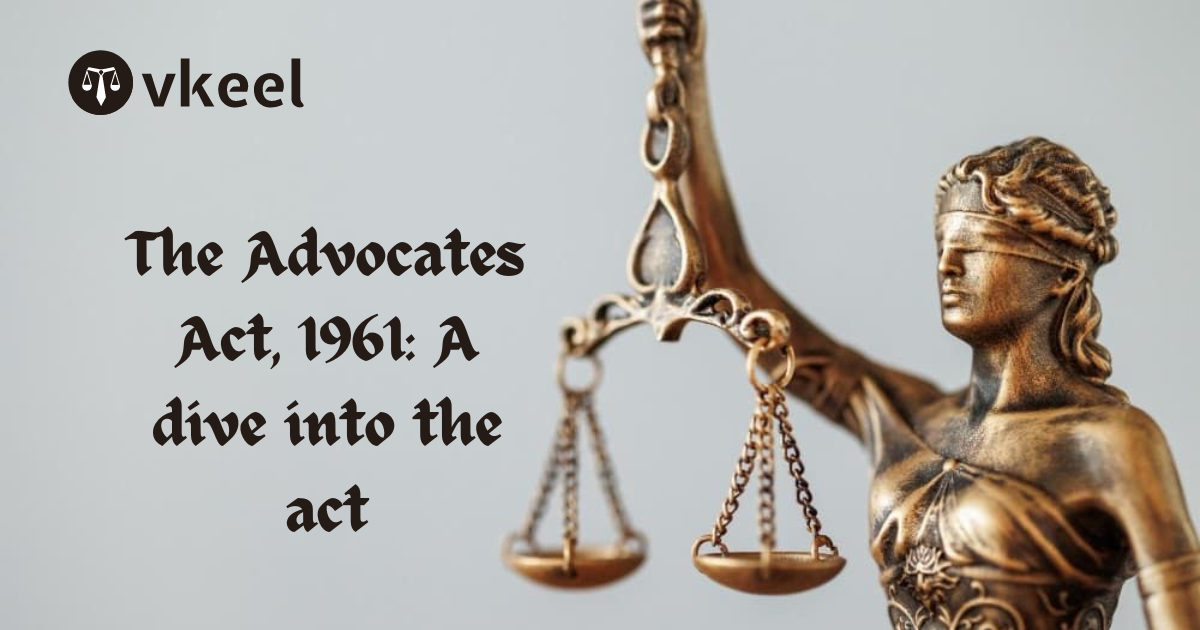Abetment to Suicide an offence under Section 306 of Indian Penal Code (IPC), 1860
By Kishan Dutt Kalaskar
A person is accountable for abetment to suicide when any of the following conditions are fulfilled:
- He/She instigates someone to commit
- He/She takes part in a conspiracy to make a person commit
- He/She helps the victim deliberately so he can commit suicide by doing an act or not doing something that he was bound to
Section 108 of the IPC defines the abettor. A person abets an offence, who abets either the commission of a crime or the commission of such an act, which would have been an offence if committed by a person capable by law of committing an offence with the same purpose or information as that of the abettor.
In accordance to Section 306 of Indian Penal Code-If any individual commits suicide, whoever abets the commission of such suicide, he/she shall be punished with the sentence of either for a term, which may extend for a period of ten years and shall also be liable to fine.
Section 306
Section 306 states that “If any person commits suicide, whoever abets the commission of such suicide shall be punished with imprisonment of either imprisonment for a term which may extend to ten years, and shall also be liable to fine.”
Consult with: Top Lawyers of India
Abetment of suicide is an offence tried in a Sessions court and is cognizable, non-bailable and non-compoundable in nature.
Cognizable offence: A police officer can make an arrest without a warrant from a court.
Non-bailable offence: Bail is granted to the accused at the discretion of the court, and not as a matter of right.
Non-compoundable offence: The case cannot be withdrawn by the complainant even when the complainant and the accused have reached a compromise. The court will not allow withdrawal of a case involving a non-compoundable offence.
How did section 306 come into force
Section 306 of the Indian Penal Code, 1860 was added in order to prevent sati. In those days the tradition of sati was widespread in India. The suffering of the widows used to lead them to commit Sati. In order to eliminate this iniquity, this provision was added consequently. It was established that wife had committed suicide consequent to ill-treatment meted out to her by mother-in-law, sister-in-law and husband. It was held that these persons were liable to be convicted under sections 306 for abetting her to commit suicide. Due to not bringing sufficient dowry, the accused was ill-treating the deceased. The evidence on record made out case of persistent and unabated harassment and cruelty. This compelled the deceased to commit suicide by consuming a poisonous substance. The accused’s husband was held guilty under sections 306 and 498-A.
Before the offence under section 306 can be proved, the presence of mens rea is of utmost importance.
Talk with: Best Lawyers of India
To hold a person guilty of abetment to commit suicide under the said provision, there has to be a clear mens rea on his part to instigate another to commit suicide. There should be objective to aggravate, incite or persuade the doing of the act by the other individual. The suicide must necessarily have been committed, also, a person may abet suicide by words or conduct, or both. A person is said to have instigated another to commit suicide when he, by his acts or omissions or a continued course of conduct, created such circumstances that the other was left with no other alternative but to commit suicide. Words that a person speaks in a fit of anger or emotion without any intention of making anyone commit suicide, does not amount to abetment. Some active role in the commission of suicide by the accused needs to be proved to hold him responsible for abetting it. Without action on the part of the accused person to instigate or aid the deceased person committing suicide, the conviction is not sustainable.
The scope and ambit of section 306 of IPC
Abetment is a procedure in which there is a mental progression of instigating an individual or intentionally aiding a person in doing a particular act. The purpose of the legislature and the proportion of the cases decided by the Supreme Court is obvious that in order to charge a person
under section 306 Indian Penal Code, 1860 there has to be a lucid mens rea to commit the offence. It also requires a dynamic act or direct act, which led the deceased to commit suicide seeing no alternative and that act must have been intended to put the deceased into such a point that he had to commit suicide.
In the landmark judgement of M. Mohan v State, the Apex Court held that there should be a close link between the act of the accused and the act of committing suicide. If the link is not present, it cannot be said that the accused has instigated, or intentionally aided the commission of suicide. Meagre threats of involving the family in false and frivolous cases cannot be held to equivalent to instigation. Abetment thus essentially means some active proposition or support to the commission of the offence.
In Gurcharan Singh v. the State of Punjab, it is mentioned that the necessary ingredients of this provision are suicidal death and the abetment thereof. To encompass abetment, the meaning and involvement of the accused to aid or bring about the commission of suicide is very important. Any severance or deficiency of any of these constituents would militate against this condemnation.
Consult with: Top Lawyers of India
Presumption of abetment
As to offence of abetment to commit suicide, section 113-A of the Evidence Act, 1872 lays down that (a) if a married lady commits suicide within seven years of her marriage;
(b) if her husband or his relative had subjected her to cruelty within the meaning of the term as defined in section 498-A of the Indian Penal Code, 1860, then the Court may raise the presumption of the fact that the husband or such relative of her husband abetted the suicide.
As to the presumption of abetment to commit suicide dealt with in section 113-A of the Evidence Act, 1872 it is applicable when the husband or any relative of his is guilty of cruelty to the wife, he or she is punishable under section 498-A of the Indian Penal Code, 1860. In short the first requisite for attracting the presumption under Section 113-A of the Evidence Act, 1872, must be proved that the wife was subjected to cruelty as defined in section 498-A Indian Penal Code, 1860.
The simple fact that if a married woman commits suicide within a phase of seven years of her marriage, the assumption under section 113-A of the Evidence Act, 1872 would not
automatically apply. The presumption under Section 113-A is discretionary, and the Court can consider the nature of cruelty to which the woman was subjected to, having regard to the meaning of the word “cruelty” in section 498-A of the Indian Penal Code, 1860.
In the case of Appasaheb versus the State of Maharashtra (the important issue of offences related to dowry) Appasaheb was convicted for the death of his wife, Bhimabai, after she consumed poison. A case was registered against him and his mother under IPC Sections 498A (cruelty against the woman for dowry), and 306 (abetment of suicide). Though the accused were acquitted for the offence of cruelty and abetment, the husband was convicted on the charge of dowry death. Allowing the appeal, the Supreme Court Bench quashed the conviction and said the statement of the mother of the deceased did not state that the cause for ill-treatment was a demand for money and consequent beating.
Talk with: Best Lawyers of India
In the present case, the Supreme Court’s interpretation is at odds with the purpose of the legislation. Rather than looking at the enactment as social reform legislation, the judgment equates it with the legislation in the area of any trade, business or transaction.
Proof of concept
Instigation has to be collected from the situation of the case. Not all cases may be of direct evidence about instigation having a direct nexus to the suicide. There could be cases where the state of affairs produced by the accused are such that a person feels very aggravated and finds it difficult to continue survival.
In Chitresh Kumar Chopra v. State (Govt. of NCT of Delhi), the Supreme Court reiterated the legal jurisprudence that was laid down in its earlier judgment in the case of Ramesh Kumar
- the State of Chhattisgarh and held that where the accused by his acts or continuous course of behaviour creates such circumstances that the deceased person was left with no other substitute except the option to commit suicide, an instigation may be indirect. In order to prove that the accused abetted commission of suicide by a person, it has to be recognized that:
- The accused kept on frustrating or annoying the deceased by words, deeds or wilful omission or conduct which may even be an unruly stillness until the deceased responded or pushed or forced the deceased by his deeds, words or wilful oversight or behaviour to make the deceased move forward more rapidly in a forward direction; and
- That the accused had the purpose of aggravating urge or persuading the deceased to commit suicide while acting in the way noted above, undoubtedly, mens rea is a necessary element of
Conclusion
Abetment of suicide, be it either instigating the victim or aiding the victim in the commission of the suicide. The accused can defeat the penal provisions dealing with such offence very easily, as the scope of the provision is limited to only three categories, which is actually a loophole. Therefore, there is an urgent requirement to amend the provisions which deals with the offence of abetment, in such a manner that the criminals are not unable to evade the legislations, mend the cases suiting their own requirements, and break away from the punishments. In addition, the laws are needed to be interpreted not strictly in a confined manner. However, according to the facts and circumstances of each case so that justice prevails. The current definition of abetment falls short. The section covers abetment by way of aid, instigation and conspiracy, but there are instances where the actions of the person do not strictly fall in these three categories but pressurize a person to commit suicide.
Consult with: Top Lawyers of India
Disclaimer:
The information provided in the article is for general informational purposes only, and is not intended to constitute legal advice or to be relied upon as a substitute for legal advice. Furthermore, any information contained in the article is not guaranteed to be current, complete or accurate. If you require legal advice or representation, you should contact an attorney or law firm directly. We are not responsible for any damages resulting from any reliance on the content of this website.












